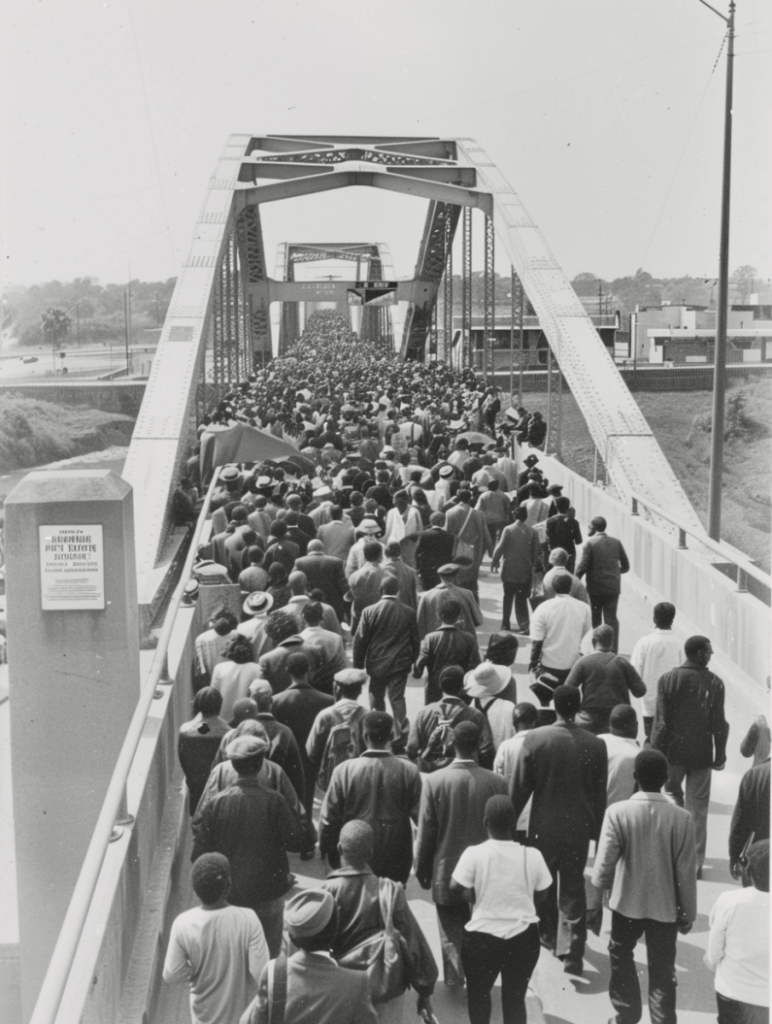On This Day, March 7, 1965, a day that would go down in history as “Bloody Sunday,” hundreds of non-violent civil rights activists gathered in Selma, Alabama to demand equal voting rights. Their planned 54-mile march from Selma to the state capital of Montgomery was meant to underscore the systematic disenfranchisement of African Americans in the South.
As around 600 marchers, led by icons like John Lewis and Hosea Williams, began crossing the Edmund Pettus Bridge out of Selma, they were shockingly attacked by Alabama state troopers. Wielding billy clubs, tear gas, and whips, the officers ruthlessly beat and trampled the peaceful protesters, leaving many bloodied and injured on the road. Scenes of the unprovoked brutality against non-violent marchers immediately spread across American television screens.
The horrific events of “Bloody Sunday” ignited outrage across the nation, becoming a defining moment that laid bare the harsh realities of racial segregation and injustice in the South. This culminated in the passing of the Voting Rights Act of 1965, landmark legislation that finally prohibited discriminatory voting practices nationwide. “Bloody Sunday” demonstrated the true courage of peaceful protesters and became an iconic catalyst that helped dismantle legalized racial oppression.
Ai generated image which may not be accurate.
